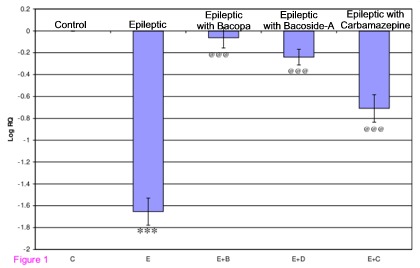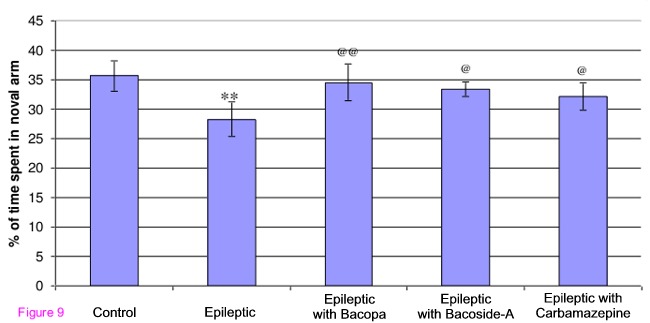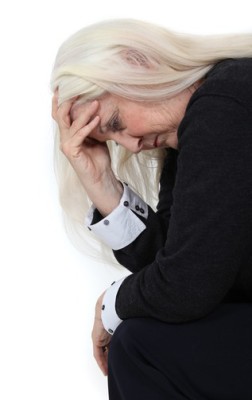Diseases
Common Herb, Water Hyssop, Reverses Epilepsy, Treats and Prevents Other Brain Disorders
 Bacopa monnieri is a lovely wild and garden plant that has recently been shown to completely reverse epilepsy in rats. Herbalists call it adaptogenic, meaning that it’s a plant with the ability to strengthen the immune system and help the body adapt to the environment. Therefore, it’s not surprising that it’s known to benefit many health problems.
Bacopa monnieri is a lovely wild and garden plant that has recently been shown to completely reverse epilepsy in rats. Herbalists call it adaptogenic, meaning that it’s a plant with the ability to strengthen the immune system and help the body adapt to the environment. Therefore, it’s not surprising that it’s known to benefit many health problems.
Bacopa m. is known in Ayurvedic medicine as a treatment for both epilepsy and asthma. It’s been shown to be beneficial in several conditions, including:
- Mental decline associated with aging
- Mental impairment associated with oxidative stress
- Alzheimer’s disease
- Prevention of aluminum toxicity in the brain
- Inflammation
- Tumors
- Epilepsy
- Liver protection
The best documented benefits center around brain neurology, and the positive effect on epilepsy is stunning—likely better than pharmaceutical drugs and without their adverse effects, as discussed later. In this time of severe degenerative brain diseases, it clearly has an important role to play in health, both in treatment and prevention of disorders.
Bacopa m. is a perennial that favors wetlands and can readily be grown in garden bogs. As you can see in the photo above, it’s an attractive low-growing and sprawling addition to a wet garden.
It’s been given several common names, including Water hyssop, Thyme-leafed gratiola, Coastal water hyssop, and Brahmi. If considering growing it yourself, be careful to assure that the taxonomic name is Bacopa m. (Note that some references call it Bacopa monniera, ending it with an a instead of i.) The name Brahmi is also used to refer to the plant Centella asiatica, which is commonly called gotu kola and has its own medicinal value. You may see references stating that Bacopa m. is the same as Ginkgo biloba, which is quite useful, but the two herbs are unrelated.
Whole Plant Versus the Active Ingredient
Bacoside-A is the active substance found in the plant. It affects gamma amino butyric acid – GABA – which is a primary inhibitor of overactive neurons. Modern medicine tends to focus on the active ingredient, to the exclusion of the synergistic effects of the plant as a whole. They chop, strain, heat, purify, and synthesize down to a single molecule, resulting in a chemical that truly is a drug and lose the beneficial effects of the plant as a whole. The excuse is that it makes possible knowing exactly how much of the active element is being given to the patient. The real reason, though, is that it allows Big Pharma to patent and own the rights to the chemical so they can maximize profits, and it forces people to pay the gatekeepers, doctors, to gain access to it.
Fortunately, there is a great deal of ancient herbal lore to guide us to a herb’s uses and methods of application. So, as long as we can obtain the plant, we should be able to use it. In the case of Bacopa m, the whole plant is used to make a tincture. In reviewing the following study, I describe the researchers’ method for making a tincture because it’s can readily be duplicated at home. The methodology of the study quite nicely demonstrates the truth of the synergistic superiority of using the plant, rather than a purified or synthesized molecule.
Epilepsy Study
Several studies have suggested that Bacopa m’s effect on GABA function in the brain is associated with alleviation of epilepsy in lab rats. A study published a couple of days ago in BioMed Central’s Journal of Biomedical Science(1), showed that the herb can reverse epilepsy almost completely. Particularly exciting is that, while anticonvulsive drugs in use now further damage the brain and harm cognitive function, Bacopa m. enhances it.
A Bacopa m. tincture was made by collecting whole non-flowering plants: roots, stems, and leaves. They were washed, cut into small pieces, and then dried in the shade. About 100 grams of fresh plant yielded about 15 grams of powder after the dried material had been homogenized. The authors did not describe how homegenization was done, but it can be done either by hand, with a mortar and pestle, or by using a blender. 450 grams of dried homogenized powder was dissolved in 80 milliliters of distilled water to produce the final tincture.
Status epilepticus, that is, a constant state of seizure, was induced in rats with injections of pilocarpine and atropine. Controls were injected with saline. The epileptic rats were given Bacopa m. alone, Bacoside-A, or carbamazepine (generic name of Tegretol, a common anti-seizure med). The rats were then given several tests for a variety of epilepsy-related factors, especially GABA function, and put through mazes. The results were striking.

The graph at the left charts change of GABA expression in the rats. (Bar titles have been added.) Note that the reduction in change from epilepsy status (second bar) to nonepilepsy/control status (first bar) is near complete in rats given Bacopa m. Those given synthesized Bacoside-A did significantly better than those given the drug carbamazepine, but the pure plant tincture was significantly better than either of them.
The same rats’ ability to solve a maze is summarized in the graph below. (Bar titles added.) Notice that the Bacopa m-treated rats outperformed both the drug and synthesized Bacoside-A treated rats.

This study clearly demonstrates both the efficacy of the herb Bacopa monnieri and how it significantly outperforms both the drug carbamazepine and the synthesized active ingredient of Bacopa m. Clearly, the herb alone is a far better treatment than anything in use by modern medicine.
The safety profile of Bacopa m. is also far superior. We don’t have information regarding Bacoside-A. However, carbamazepine is a particularly dangerous drug, with adverse effects that include psychosis, leukopenia, aplastic anemia, hepatitis, heart disease, liver failure, impotence, and a large array of other negative effects.
Why would anyone choose to use pharmaceutical drugs before trying the humble herb, Bacopa monnieri, in epilepsy?
Tumors
There is a fair amount of herbal lore affirming Bacopa m. as an anti-tumor substance. Scientific research on tumor effects isn’t as extensive as for epilepsy. However, existing research supports its efficacy in treating tumorous cells in human cell lines in labs and in sarcoma-induced mice.
Alzheimer’s Disease & Cognitive Deficits
Both animal and human studies have demonstrated beneficial effects on overall cognitive ability and to improve Alzheimer’s mental symptoms. Studies in Drosophila melanogaster, the fruit fly so common in science research, have demonstrated that the mental benefits are probably the result of protection against oxidative stress, anti-inflammatory effects, and the dissolution of brain plaques. Research in this area also demonstrates an overall neuroprotective health benefit, indicating that it might be useful as a supplement to diet.
Additional Human Effects
The herbal lore indicates that Bacopa m. is also helpful in nervous conditions, including anxiety and depression. Its nerve soothing effect is well known in the scientific literature, so an ability to ease anxiety wouldn’t be surprising.
The herb has been well documented to be beneficial to the liver, and has been shown to improve the health of damaged livers in rats.
Its ability to ease inflammation can aid arthritis sufferers. At least one study has documented antirheumatic capability, too.
Soil Health
Bacopa m. is noted for its affinity for heavy metals, most notably aluminum and cadmium. This has led to its use in returning toxic soil to health. It accumulates toxic metals, pulling them from soil. Of course, the plants should then be treated as toxic waste.
This does point to concern that Bacopa m. may be toxic. It is, therefore, critical to assure that the source of plants be identified and verified not to come from toxic soil.
As has been pointed out here, purified and isolated active ingredients are not as desirable as a simple plant extract. Adding in concerns about Bacopa m’‘s affinity for heavy metals means that it’s strongly advisable to purchase it only if the source – back to the plant – is known.
Chelation
Chelation is stripping heavy metals from the body. Because Bacopa m. can assimilate heavy metals from the soil does not necessarily imply that it’s good for pulling heavy metals out of the body. There is, though, some indication from studies that one reason the herb may be beneficial in Alzheimer’s disease is an ability to chelate aluminum, which has been strongly implicated as a factor in developing the disease.
Possible Contraindications with Bacopa monnieri
Because it may have a blood thinning effect, those who are taking drugs like coumadin shouldn’t also take Bacopa monnieri.
The usual advice holds for pregnant women: This herb has not been tested for safety during pregnancy.
Sources:
- (1)Decreased GABA receptor in the cerebral cortex of epileptic rats: effect of Bacopa monnieri and Bacoside-A
- Antitumor activities of dammarane triterpene saponins from Bacopa monniera
- Decreased GABA receptor in the striatum and spatial recognition memory deficit in epileptic rats: effect of Bacopa monnieri and bacoside-A.
- Neuroprotective efficacy of Bacopa monnieri against rotenone induced oxidative stress and neurotoxicity in Drosophila melanogaster.
- Effects of a standardized Bacopa monnieri extract on cognitive performance, anxiety, and depression in the elderly: a randomized, double-blind, placebo-controlled trial.
- Cognitive enhancement and neuroprotective effects of Bacopa monnieri in Alzheimer’s disease model.
- Bacopa monniera supports the functions of the central nervous system
- Effect of bacoside A on brain antioxidant status in cigarette smoke exposed rats
- Sampling of Plant Species Studied for Phytoremediation
- Neuroprotective mechanisms of ayurvedic antidementia botanical Bacopa monniera
- Bacopa Targets Joint Inflammation
- Potential Effect of Bacopa monnieri on Nitrobenzene Induced Liver Damage in Rats
Tagged alzheimer’s bacopa, bacopa monnieri, epilepsy bacopa, epilepsy herb, herb bacopa, natural health, natural medicine, science, water hyssop













